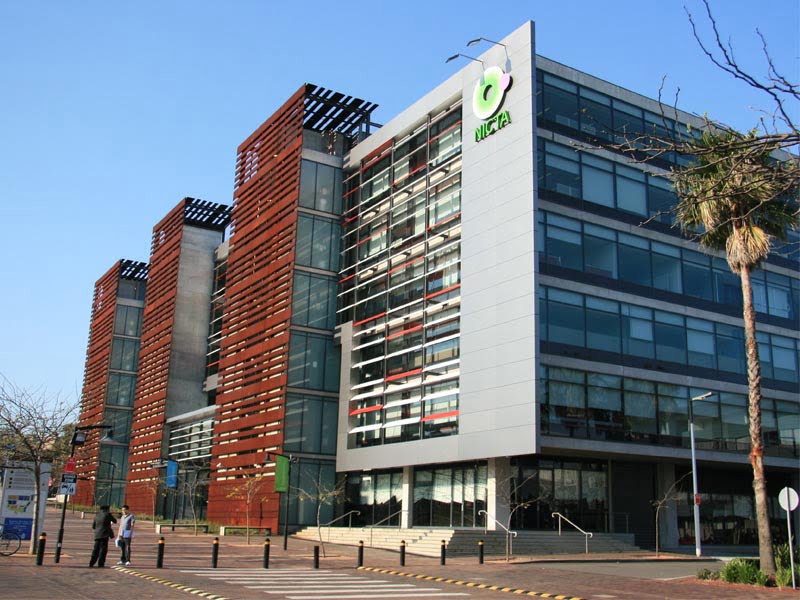With its creation last Friday heralded ingloriously by a “taking out the trash” ministerial statement, Data61 was the best outcome among many unappealing alternatives, according to NICTA board member Russell Yardley.
The folding of Australia’s premier ICT research and industry collaboration engine NICTA into the digital productivity flagship at CSIRO did not come easily. In the end, after an extended negotiation, the deal fell over the line.
Announced by press release (and duly republished by an uncritical tech media), there was no-one interested in talking about this.

But the man who will take the helm of Data61 – returning expatriate Australian Adrian Turner – has perhaps found an unlikely supporter in Richard Alston, the former Howard Government cabinet minister and current Liberal Party president who established NICTA in 2002.
As communications minister, Mr Alston’s great legacy was in securing substantial long-term funding for NICTA, for what was a brave new model for driving better research outcomes.
He did this at a time when the ICT sector was on-the-nose, reeling from the credibility shocks of the first dotcom bust, and from within a government that was not famous for its interest in the tech industry. (Although it must be added that the mining boom was gathering pace, and the Commonwealth balance sheet was strong).
“I think [Data61] is going to be very good,” Mr Alston told InnovationAus.com. “[Adrian Turner] will bring some marvellous insights from Silicon Valley,” before adding that he brings the right mix of industry, finance and commercialisation skills to the role.
NICTA board member Mr Yardley says the creation of Data61 was, in the end, the best way to preserve the considerable value created over the 12 years that NICTA has been in operation.
If the new organisation is structured in such a way to provide the right incentives to ensure that its research focus is tightly targeted on areas where it can deliver maximum value, it can be an important wealth creation engine for Australia, he said.
Ultimately, despite some obvious disappointment about NICTA, he is bullish about the prospects for Data61. Data science – the application of advanced data analytics across a targeted set of projects and problems – will be key.
“We need to take our very best talent, and give them the resources they need to do world class work,” Mr Yardley said. “It is not enough that we just do ‘commodity research’ at the edges.”
He says Data61 should take its PhD students from anywhere in the world, attracting the best minds to the task at hand.
“We need to be able to get the best and brightest students. We should be taking the best talent available and get them working on things that are very, very hard,” Mr Yardley said.
Since it was founded during the Howard years, NICTA has received federal and state funding of about $750 million. That’s three-quarters of a billion taxpayer dollars.
The agency came unstuck on Budget night in 2014 when it lost $43 million from its annual income of roughly $100 million. The budget cut was to take effect from the 2016 financial year.
So the announcement on Friday was actually the culmination of a firesale of the public’s $750 million long-term investment. Had it not agreed, in the end, to merge with CSIRO interests, NICTA would have shut its doors and turned out the lights.
All for want of $43 million.
Mr Yardley says the organisation simply did not have enough time to devise another revenue model.
“Obviously as board members, the responsibility was to make sure that the entity (NICTA) was solvent and running properly, and to make sure we could pay our bills when they fell due,” Mr Yardley said, adding that it always kept a contingency of funds that would enable it to shutter the organisation entirely.
Simply winding up NICTA would have been an expensive process, and Mr Yardley said the board had naturally set aside funds to meet its obligations – ranging from redundancy payments to finalising retail agreements. This foreshortened the available time and budget to fix the issue.
“We didn’t have two years. In reality we had eight or nine months to apply creative solutions,” Mr Yardley said. “Would we have preferred something different to have happened? Absolutely.”
As evidenced by the impersonal “take out the trash” announcement – to draw on an Aaron Sorkinism – this was a decision no-one was happy about. No-one wanted to stand on a stage and talk about this. As many as 200 employees may lose their jobs, some from NICTA and some from the CSIRO.
Even Labor was tepid in response. It didn’t decry the loss of NICTA or applaud the creation of Data61.
Labor’s industry spokesman Kim Carr and communications shadow Jason Clare welcomed the announcement that NICTA had “found a way forward” that avoided total collapse and the loss of everyone’s job.
Since it was founded, NICTA has enjoyed largely bi-partisan support. But I must say Mr Carr should just stay out of it. He never showed much interest in NICTA when he was Industry minister, preferring to spend his time shovelling money at the automotive industry.
It is a terribly sad thing to see a research institution lose its independence. Especially when it was just starting to gather momentum. To see it merged with the CSIRO, with its frankly terrible reputation for commercialisation, collaboration or even industry engagement is confronting.
This is for Adrian Turner and CSIRO chairman Larry Marshall to change. And it is good news that they appear to have found a political friend from a high place in Richard Alston.
Do you know more? Contact James Riley via Email.

